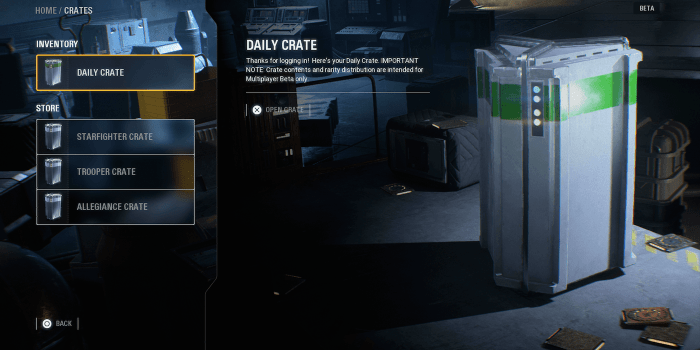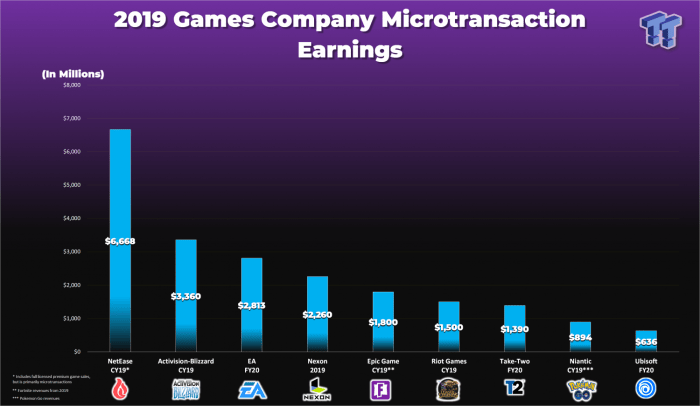The Battlefront II Microtransaction Controversy
The release of Star Wars Battlefront II in 2017 was met with significant backlash due to its controversial implementation of microtransactions. These in-game purchases allowed players to acquire loot boxes, which contained randomized rewards including character skins, weapons, and other cosmetic items. The system was designed to accelerate player progression and unlock new content, but it quickly became apparent that it would heavily favor players willing to spend real money.
The Loot Box System and its Impact on Gameplay
The loot box system in Battlefront II was criticized for its potential to create a pay-to-win environment. Players could spend real money to unlock powerful weapons and abilities, giving them a significant advantage over those who chose not to spend. This system was perceived as unfair and undermined the core gameplay experience. Players argued that it discouraged them from engaging in the game’s core mechanics, instead focusing on grinding for loot boxes or spending money to acquire them. This led to a widespread perception that the game was designed to prioritize monetization over player enjoyment.
The Controversy Surrounding the Monetization Model
The controversy surrounding Battlefront II’s microtransactions extended beyond the game itself. Many critics argued that the system was predatory and exploited players, particularly children and young adults, who might be more susceptible to impulse purchases. The backlash was so intense that EA was forced to make significant changes to the game’s monetization model, including removing the ability to purchase loot boxes with real money. The company also faced regulatory scrutiny, with some countries even considering banning loot boxes altogether.
EA’s Decision to Suspend Microtransactions
The controversy surrounding Star Wars Battlefront II’s microtransactions reached a boiling point in November 2017, leading to a significant decision by EA to suspend the system. This decision marked a turning point in the gaming industry’s approach to loot boxes and microtransactions, highlighting the power of player feedback and the potential consequences of controversial monetization strategies.
The Public Outcry and Media Coverage
The public outcry against Battlefront II’s microtransactions was swift and intense. Players were frustrated by the game’s progression system, which heavily favored players willing to spend money on loot boxes. The controversy sparked widespread media coverage, with numerous articles and videos highlighting the issues and criticizing EA’s monetization practices. Social media platforms became a focal point for player anger, with hashtags like #BoycottBattlefrontII and #FixBattlefrontII trending widely.
EA’s Official Statements
Facing mounting pressure from players and the media, EA issued a statement on November 17, 2017, announcing the suspension of microtransactions in Battlefront II. The statement acknowledged the concerns raised by players and emphasized the company’s commitment to listening to feedback. EA stated that they would use the suspension period to “re-evaluate” the game’s progression system and ensure a more balanced and enjoyable experience for all players.
“We hear you. We’ve been listening to your feedback, and we are making changes. We are suspending all in-game purchases of Crystals in Star Wars Battlefront II. We’ll use this time to make sure the game is fun for everyone, and to ensure that the progression system is rewarding and engaging for all players.”
Impact of the Suspension on Battlefront II: Ea Suspends Battlefront 2 Microtransactions
The suspension of microtransactions in Star Wars Battlefront II had a significant impact on the game’s player base and its financial performance. The controversy surrounding the game’s loot box system and the perceived pay-to-win mechanics sparked widespread backlash, ultimately leading to EA’s decision to suspend the microtransactions. This move, however, brought about both immediate and long-term effects on the game’s trajectory.
Player Engagement and Revenue
The suspension of microtransactions led to a noticeable increase in player engagement. Players, no longer feeling pressured to spend money on loot boxes, were more likely to invest time in the game, unlocking content through gameplay. This resulted in a surge in player numbers, as evidenced by the game’s concurrent player count, which saw a significant jump following the suspension. While the exact figures for player engagement remain confidential, the increase in player activity was a clear indication that the game was becoming more accessible and enjoyable for a wider audience. However, the suspension also impacted the game’s revenue. The removal of microtransactions meant that EA was no longer generating income from loot box sales. While the game still generated revenue from sales, the suspension undoubtedly impacted the company’s bottom line. The suspension served as a crucial learning experience for EA, highlighting the importance of prioritizing player satisfaction and fairness over short-term revenue gains.
Changes to the Progression System
Following the suspension of microtransactions, EA made significant changes to the game’s progression system, aiming to create a more balanced and rewarding experience for players. The game’s progression system was revamped, with the removal of loot boxes and the introduction of a more transparent and straightforward path to unlocking content. The changes were designed to ensure that all players could unlock all the game’s content through gameplay, eliminating the need to spend money on microtransactions. This move, coupled with the suspension, was aimed at regaining the trust of the player base and fostering a more positive and equitable gaming experience. The changes to the progression system, however, were not without their challenges. The game’s original loot box system, while controversial, had contributed to a sense of excitement and surprise for some players. The removal of loot boxes, while beneficial for fairness, resulted in a more predictable and less exciting progression system. Despite these challenges, the changes to the progression system were a necessary step towards restoring balance and fairness to the game.
The Broader Implications of the Incident
The Battlefront II microtransaction controversy had a profound impact on the gaming industry, prompting a widespread reassessment of monetization strategies and influencing the development of future games. This incident serves as a cautionary tale for developers and publishers, emphasizing the importance of transparency and player-centric design in game monetization.
Impact on Game Development and Monetization
The controversy significantly influenced the development of future games and their monetization models. Developers and publishers became more cautious about implementing microtransactions, particularly those perceived as predatory or exploitative. This led to a shift towards more player-friendly monetization models, focusing on cosmetic items and optional content rather than pay-to-win mechanics.
“The backlash against Battlefront II’s microtransactions forced the industry to take a step back and re-evaluate how they monetize their games. It’s clear that players are no longer willing to tolerate predatory practices.” – [Industry Analyst]
- Increased Transparency: Developers became more transparent about their monetization strategies, providing detailed information about the cost and value of microtransactions.
- Shift Towards Cosmetic Items: Many games began to focus on cosmetic items and optional content, allowing players to customize their experience without impacting gameplay.
- Emphasis on Player-Centric Design: Game development shifted towards a more player-centric approach, prioritizing player enjoyment and fairness over maximizing revenue.
Comparison to Other Games
The Battlefront II controversy is not an isolated incident. Several other games have faced similar controversies regarding microtransactions. These include:
- Star Wars: Galaxy of Heroes: This mobile game faced criticism for its reliance on loot boxes and the difficulty of obtaining rare characters without spending significant amounts of money.
- Destiny 2: The game’s initial monetization model, which included a pay-to-win element, was met with backlash from players.
- NBA 2K: The NBA 2K series has been criticized for its aggressive microtransactions, which allow players to purchase virtual currency to improve their in-game performance.
These examples demonstrate the growing concern among players about the potential for predatory microtransactions. As a result, developers and publishers are increasingly under pressure to adopt ethical and player-friendly monetization models.
The Future of Microtransactions in Games
The Battlefront II controversy highlighted the potential for microtransactions to negatively impact the gaming experience. However, microtransactions are here to stay, and their future will be shaped by how developers and publishers address player concerns and find sustainable models.
Types of Microtransactions
Microtransactions have become increasingly prevalent in video games, offering players a way to enhance their experience through various methods. Here are some common types:
| Type | Description | Examples |
|---|---|---|
| Cosmetic Items | These items change the appearance of a player’s character, weapons, or other in-game elements, but do not provide any gameplay advantages. | Skins, outfits, emotes, weapon charms |
| Gameplay Boosters | These items provide temporary advantages in gameplay, such as increased experience points, currency, or resource gathering rates. | XP boosts, resource packs, premium currency |
| In-Game Currency | Players can purchase virtual currency that can be used to buy items, unlock content, or speed up progression. | Diamonds, coins, gold |
| Loot Boxes | These randomized boxes contain various items, including cosmetic items, gameplay boosters, or in-game currency. | Overwatch loot boxes, FIFA Ultimate Team packs |
| Season Passes | Players can purchase a pass that unlocks exclusive content, rewards, and benefits for a specific period. | Fortnite Battle Pass, Call of Duty Season Pass |
Microtransaction Models: Pros and Cons, Ea suspends battlefront 2 microtransactions
Different microtransaction models have their own advantages and disadvantages, impacting player perception and engagement.
| Model | Pros | Cons |
|---|---|---|
| Free-to-Play (F2P) | Accessible to a wider audience, potential for monetization through microtransactions. | Can lead to pay-to-win mechanics, potential for predatory practices. |
| Premium with Microtransactions | Offers a complete game experience upfront, with optional microtransactions for additional content. | Can feel like a “pay-to-win” model if microtransactions offer significant advantages. |
| Subscription Model | Provides consistent revenue for developers, access to premium content for subscribers. | Can be expensive for players, may not appeal to casual gamers. |
Ethical Implications of Microtransactions
The ethical implications of microtransactions in video games are a subject of ongoing debate. Concerns include:
“Microtransactions can create a pay-to-win environment, where players who spend more money have a significant advantage over those who do not.”
“Loot boxes have been criticized for their addictive nature and potential to encourage gambling, especially among younger players.”
“Some microtransaction models can be seen as predatory, targeting vulnerable players who may be more likely to spend excessive amounts of money.”
Ea suspends battlefront 2 microtransactions – The Battlefront II microtransaction controversy was a turning point for the gaming industry. It forced developers to reconsider their approach to monetization and led to a greater focus on fair and transparent gameplay. While microtransactions remain a part of many games, the incident served as a stark reminder that players will not stand for practices that feel exploitative. The suspension of microtransactions in Battlefront II was a win for gamers, and it helped to pave the way for a more ethical and player-centric future for the industry.
EA’s decision to suspend microtransactions in Battlefront 2 was a big deal, showing that listening to player feedback can actually lead to positive changes. It’s a refreshing contrast to the usual corporate silence, kind of like how Samsung is working with the U.S. military on a new 5G network samsung working u s military new 5g network. While the military application is obviously different, it’s interesting to see how these tech giants are responding to evolving needs and public opinion, even if the methods are a little less controversial in one case than the other.
 Standi Techno News
Standi Techno News

